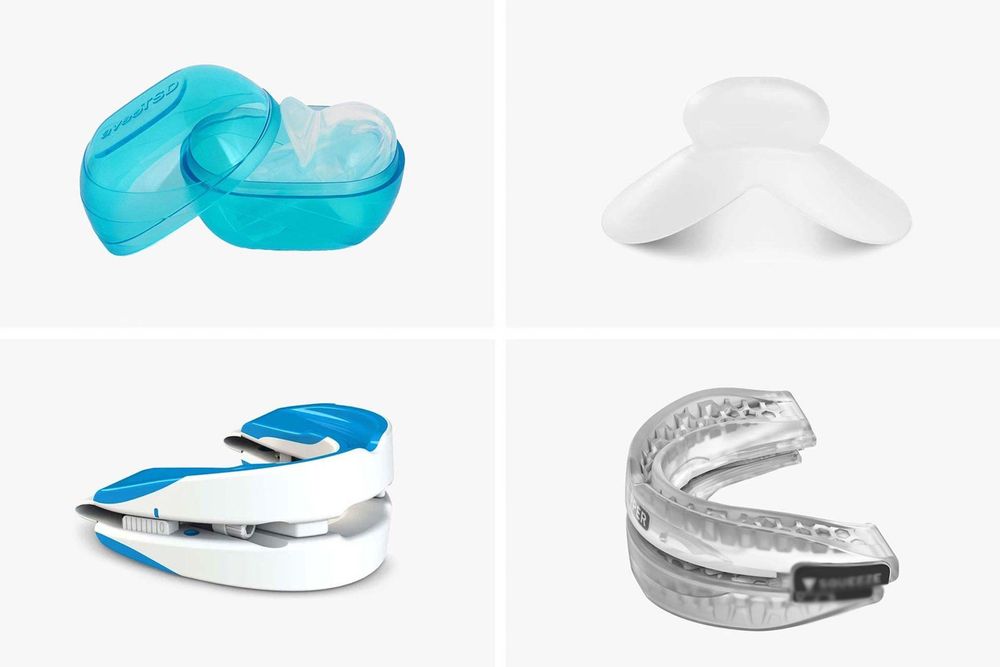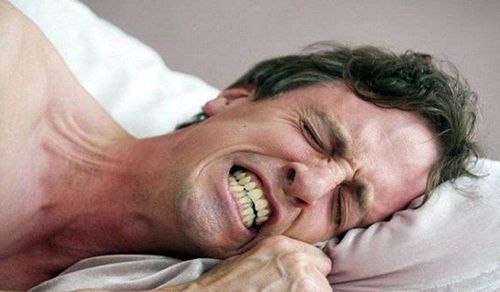This is an automatically translated article.
Statistics show that snoring is very common, but the severity and impact on health varies from person to person. Occasional light snoring is not a cause for concern, but heavy snoring coupled with a number of other signs can indicate a serious sleep-related breathing disorder.
1. Why do you snore?
Snoring is the clicking sound and vibration of tissues near the airways at the back of the throat. During sleep, the muscles relax, narrowing the airways, and as we inhale and exhale, the air moves causing the tissues to vibrate and then make noises.
Some people snore more due to the size and shape of the muscles and tissues in the neck. In some cases, excessive tissue relaxation or narrowing of the airways can lead to snoring. Factors that contribute to an increased risk of snoring include:
Obesity Drinking alcohol Using sedatives Chronic nasal congestion Large tonsils, large tongue or soft palate Deviated septum or nasal polyps Small jaw or indentation period. Although people of all ages - including children, can snore, the condition is more common in older adults. Men snore more than women.
Snoring is one of the most common symptoms of sleep apnea, but not all snorers have the condition. Sleep apnea is a breathing disorder in which the airways become blocked or collapse during sleep, leading to recurrent episodes of shortness of breath. The snoring associated with sleep apnea is often loud and sounds like a person is choking, snorting, or gasping.
This syndrome disturbs sleep, disrupts the balance of oxygen and carbon dioxide in the body. Mild snoring may occur frequently but does not lead to other effects.

Béo phì có thể gây ra tình trạng ngủ ngáy nhiều
2. Is snoring harmful?
Harmful snoring does not depend on the type, severity and frequency of snoring. Specifics:
Mild and infrequent snoring is normal, you do not need medical testing or treatment. The main effect of light snoring is to affect only the person in the bed or room, causing them to be disturbed by sudden noises during the night. Heavy snoring is more than 3 nights/week, with enough frequency to disturb the person sleeping near you. However, heavy snoring is usually not a health problem if there are no signs of sleep disruption or sleep apnea. You may then need diagnostic tests. Snoring associated with sleep apnea is a health concern. If left untreated, this condition can have major impacts on sleep and overall health. Uncontrolled sleep apnea can make you sleepy during the day, which can lead to dangerous situations. It is also the cause of a number of serious conditions, including cardiovascular problems, high blood pressure, diabetes, stroke and depression.
3. When to see a doctor about snoring?
Most cases of snoring are benign, but you should see a doctor if you have signs of sleep apnea:
Snoring more than 3 nights per week Loud or annoying snoring accompanied by snoring gasping, choking, or snorting sounds Start to become obese or gain weight Drowsiness during the day Lack of concentration or mental sharpness Headache and nasal congestion in the morning High blood pressure Grinding teeth at night Often frequent nighttime urination. If you notice any of these signs, you need to discuss the matter with your doctor to see if testing or treatment is needed.

Người ngủ ngáy nhiều cần thăm khám bác sĩ khi có triệu chứng bất thường
4. How to know if you snore when you sleep alone
Without hearing what others say, most snorers don't know they have it. This is also part of the reason why sleep apnea is often misdiagnosed.
If you sleep alone, it is best to install a recording device. You can use a voice recorder or an app in your smartphone. It's best to do multiple nights of recording as you may not snore every night. However, this approach does not support the diagnosis of sleep apnea.
If this doesn't work, you need to look out for other signs that your sleep is disrupted, such as frequent daytime sleepiness, fatigue, difficulty paying attention or thinking, changes unexplained mood.
5. Snoring Treatment Methods
Treatment will depend on the cause of the snoring and the problems it causes. Your doctor will analyze the pros and cons of specific treatments for each patient.
For people with occasional snoring, treatment may not be needed unless snoring disturbs the sleep of the person living with them. In those cases, treatments tend to be simpler and less invasive. Meanwhile, people with sleep apnea often require more interventional treatment.
Some types of treatments include:
5.1. Lifestyle changes Lifestyle changes can help stop snoring and sometimes may not require other treatments. Even when other treatments are prescribed, doctors often encourage you to combine them with lifestyle changes to increase effectiveness. Examples of these changes include:
Maintain a healthy weight: Being overweight or obese are major risk factors for snoring and sleep apnea. So keeping a healthy weight is an important step in fighting snoring. Limit alcohol and sedatives: Alcohol is a frequent cause of snoring, and sedatives can also cause snoring. Adjust sleeping position: Lying on your back when sleeping easily causes airway obstruction. Getting used to sleeping in a different position can take time, but it's a useful change. You might consider using specialized sleep aids. Some experts recommend sewing a tennis ball to the back of your shirt so you can't sleep on your back. Elevate the head of the bed: Elevating the top of the bed can reduce snoring. To be effective, you need to raise the entire mattress, not just use extra pillows. Relieve nasal congestion: Taking steps to eliminate allergies or other causes of nasal congestion can combat snoring. A vent can help open up your nasal passages during the night, as well as dilate the inside of your nose. 5.2. Anti-Snoring Mouthpieces Anti-snoring mouthpieces help keep your tongue or jaw in a stable position so that it doesn't block your airway while you sleep. There are two types of anti-snoring troughs:
Mandibular Elevator: This device keeps the lower jaw from moving backward. Wide range of flexible adjustments to fit you comfortably and for greater efficiency. Tongue Holder: Helps keep the tongue from sliding towards your throat. Meanwhile, continuous positive airway pressure (CPAP) is still considered the gold standard treatment for sleep apnea. However, some people find wearing this device uncomfortable, especially if it is loud or cramped. For patients who cannot tolerate a CPAP machine, they may require a separate anti-snoring tray. Mandibular elevation devices have been shown to be effective not only for snoring, but also for mild to moderate sleep apnea.

Đeo máng chống ngáy là lựa chọn cho người ngủ ngáy nhiều
5.3. Mouth exercises The muscles around the airways relax, making you more likely to snore. Doing exercises that strengthen the mouth, tongue, and throat help build strong mouth muscles to reduce snoring. Oral anti-snoring exercises have shown positive effects in people with mild snoring provided daily practice for a period of 2 to 3 months.
5.4. Surgery Rarely, surgery is needed to treat snoring or sleep apnea. This option is taken into account only when all other methods are ineffective. Surgery helps to shape and widen the airways by removing nearby tissue, and resolves nasal polyps, deviated septum, or other blockages of the nasal passages.
If you share a bed or room with someone who snores a lot, using earplugs can help you sleep better and avoid family stress. A white noise machine, white noise application, or even a fan can also help drown out mild snoring.
Follow Vinmec International General Hospital website to get more health, nutrition and beauty information to protect the health of yourself and your loved ones in your family.
Please dial HOTLINE for more information or register for an appointment HERE. Download MyVinmec app to make appointments faster and to manage your bookings easily.
References: mayoclinic.org, sleepfoundation.org, webmd.com












